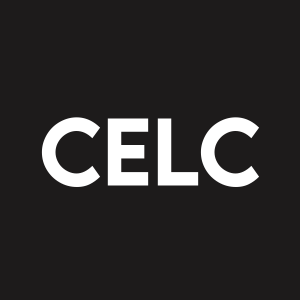Celcuity Reports Clinical Data from Two Early Phase Studies of Gedatolisib
Rhea-AI Summary
Celcuity (NASDAQ:CELC) has reported promising clinical data from two early-phase studies of gedatolisib, their multi-target inhibitor drug. The first study, a Phase 1 trial in metastatic castration-resistant prostate cancer (mCRPC), showed a 66% six-month radiographic progression-free survival rate when gedatolisib was combined with darolutamide.
In the second study, a Phase 2 trial for HER2+ metastatic breast cancer, gedatolisib combined with trastuzumab-pkrb demonstrated an objective response rate of 43% in heavily pre-treated patients. The median progression-free survival was 6.0 months, with median overall survival reaching 24.7 months.
Both studies demonstrated favorable safety profiles, with no patients discontinuing gedatolisib due to treatment-related adverse events. The company is now exploring additional dosing options in the mCRPC trial, with plans to enroll more patients across multiple cohorts to determine the recommended Phase 2 dose.
Positive
- 66% six-month radiographic progression-free survival rate in mCRPC trial
- 43% objective response rate in heavily pre-treated HER2+ breast cancer patients
- 24.7 months median overall survival in breast cancer trial
- Zero discontinuations due to treatment-related adverse events in both trials
- Protocol amendment allows exploration of additional doses for potential efficacy improvement
Negative
- Grade 2-3 stomatitis reported in 10.5% of mCRPC trial patients
- One patient (2.3%) experienced Grade 3 hyperglycemia in breast cancer trial
- Additional clinical studies needed to confirm efficacy
News Market Reaction
On the day this news was published, CELC gained 6.46%, reflecting a notable positive market reaction.
Data tracked by StockTitan Argus on the day of publication.
• In the Phase 1 portion of the CELC-G-201 clinical trial evaluating gedatolisib plus
darolutamide in men with metastatic castration resistant prostate cancer (“mCRPC”),
the six-month radiographic progression free survival (“rPFS”) rate was
• In a Phase 2 clinical trial of gedatolisib plus trastuzumab-pkrb as 3L+ therapy
in patients with HER2+ metastatic breast cancer (“mBC”),
the objective response rate (“ORR”) was
• No patients discontinued gedatolisib due to a treatment-related adverse event (“AE”) in
either clinical trial
MINNEAPOLIS, June 30, 2025 (GLOBE NEWSWIRE) -- Celcuity Inc. (Nasdaq: CELC), a clinical-stage biotechnology company pursuing development of targeted therapies for oncology, today announced preliminary clinical data for gedatolisib in two early phase clinical trials. Gedatolisib is a multi-target inhibitor that addresses all four class I PI3K isoforms and the mTOR complexes mTORC1 and mTORC2 to induce comprehensive blockade of the PI3K/AKT/mTOR (“PAM”) pathway.
Phase 1 Clinical Trial in mCRPC
In the Phase 1 portion of a clinical trial evaluating gedatolisib plus Nubeqa® (darolutamide), an approved androgen receptor inhibitor, 38 patients with mCRPC were randomly assigned to receive 600 mg darolutamide twice daily combined with either 120 mg gedatolisib in Arm 1 or 180 mg gedatolisib in Arm 2. In both arms, gedatolisib was administered once weekly for three weeks, then one week off. Additionally, all patients received prophylactic treatment for stomatitis. The preliminary Phase 1 data set utilized a May 30, 2025 data cut-off.
The preliminary efficacy and safety analyses for the combined arms showed:
- The six-month rPFS was
66% . - No patients discontinued treatment due to a treatment-related AE and no dose reductions were required with gedatolisib or darolutamide.
- No Grade 3 hyperglycemia was reported.
- Grade 2-3 stomatitis was reported in four (
10.5% ) patients - three (7.9% ) Grade 2 and one (2.6% ) Grade 3.
Additional preliminary results for the Phase 1 portion of the clinical trial will be presented at a medical conference later this year.
“We are very encouraged by this preliminary efficacy and safety data,” said Igor Gorbatchevsky, MD, Chief Medical Officer of Celcuity. “The
In the amended Phase 1 portion of the clinical trial, up to six patients are planned to be enrolled in each of three arms and treated with different doses. Upon completion of Phase 1, up to an additional 40 patients will be randomly assigned to up to four Phase 1b cohorts to determine the recommended Phase 2 dose (“RP2D”). Dose levels will be selected based on the results from the Phase 1 clinical trial. In the Phase 2 dose expansion study, which will include subjects from the Phase 1/1b clinical trial, up to 18 additional subjects will be enrolled to achieve a total of approximately 30 subjects treated with the RP2D. All patients will also receive standard doses of darolutamide.
Phase 2 Clinical Trial in HER2+ Metastatic Breast Cancer
In this investigator-sponsored Phase 2 clinical trial, 44 patients with HER2+/PIK3CA mutated mBC were treated with gedatolisib plus standard doses of trastuzumab-pkrb. No prophylaxis for stomatitis was administered. The median number of prior anti-HER2 therapies enrolled patients received in the metastatic setting was four or more;
Key efficacy and safety results, as presented at the American Society of Clinical Oncologists meeting in June 2025, showed:
- The ORR among all patients enrolled was
43% . - Median PFS was 6.0 months (
95% CI, 5.0-7.7). - Median overall survival was 24.7 months (
95% CI; 17.3-NA). - No patients discontinued gedatolisib due to a treatment-related AE.
- One (
2.3% ) patient experienced Grade 3 hyperglycemia.
“The
About Celcuity
Celcuity is a clinical-stage biotechnology company pursuing development of targeted therapies for treatment of multiple solid tumor indications. The company's lead therapeutic candidate is gedatolisib, a potent, pan-PI3K and mTORC1/2 inhibitor that comprehensively blockades the PI3K/AKT/mTOR (“PAM”) pathway. Its mechanism of action and pharmacokinetic properties are differentiated from other currently approved and investigational therapies that target PI3Kα, AKT, or mTORC1 alone or together. A Phase 3 clinical trial, VIKTORIA-1, evaluating gedatolisib in combination with fulvestrant with or without palbociclib in patients with HR+/HER2- advanced breast cancer is currently enrolling patients. A Phase 1/2 clinical trial, CELC-G-201, evaluating gedatolisib in combination with darolutamide in patients with metastatic castration resistant prostate cancer, is ongoing. A Phase 3 clinical trial, VIKTORIA-2, evaluating gedatolisib plus a CDK4/6 inhibitor and fulvestrant as first-line treatment for patients with HR+/HER2- advanced breast cancer is currently recruiting patients. More detailed information about Celcuity’s active clinical trials can be found at ClinicalTrials.gov. Celcuity is headquartered in Minneapolis. Further information about Celcuity can be found at www.celcuity.com. Follow us on LinkedIn and X.
Forward-Looking Statements
This press release contains statements that constitute "forward-looking statements" including, but not limited to, the size and design of our clinical trials; the timing of initiating and enrolling patients in, and receiving data from, our clinical trials; the impact of clinical trial data on our gedatolisib development program; the costs and expected results from any ongoing or planned clinical trials; the market opportunity for gedatolisib; the ability of our clinical trial data to support the filing of a new drug application; our expectations regarding our ability to obtain U.S. Food and Drug Administration approval to commercialize gedatolisib; revenue expectations; our strategy, marketing and commercialization plans, including the benefits of strategic decisions regarding studies and trials; other expectations with respect to gedatolisib; our anticipated use of cash; and the strength of our balance sheet. In some cases, you can identify forward-looking statements by terminology such as "may," "should," "expects," "plans," "anticipates," "believes," "estimates," "predicts," "potential," "intends" or "continue," and other similar expressions that are predictions of or indicate future events and future trends, or the negative of these terms or other comparable terminology. Forward-looking statements are subject to numerous risks, uncertainties, and conditions, many of which are beyond our control. These include, but are not limited to, unforeseen delays in our clinical trials, our ability to obtain and maintain regulatory approvals to commercialize our products and the market acceptance of such products, the development of therapies and tools competitive with our products, our ability to access capital upon favorable terms or at all, and those risks set forth in the Risk Factors section in our Annual Report on Form 10-K for the year ended December 31, 2024 filed with the Securities and Exchange Commission on March 31, 2025. Readers are cautioned not to place undue reliance on these forward-looking statements, which speak only as of the date hereof. We undertake no obligation to update these statements for revisions or changes after the date of this press release, except as required by law.
View source version of release on GlobeNewswire.com
Contacts:
Celcuity Inc.
Brian Sullivan, bsullivan@celcuity.com
Vicky Hahne, vhahne@celcuity.com
(763) 392-0123
ICR Healthcare
Patti Bank, patti.bank@icrhealthcare.com
(415) 513-1284







